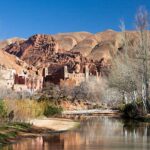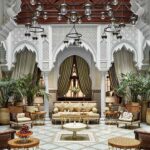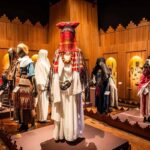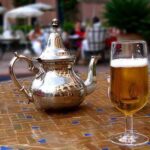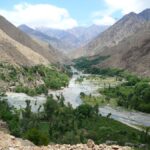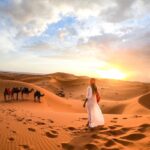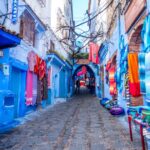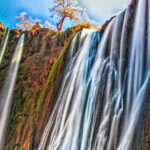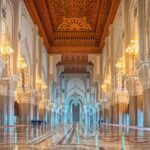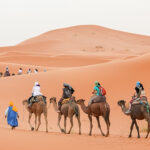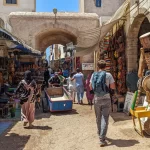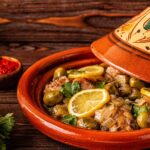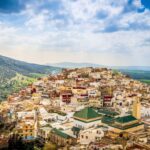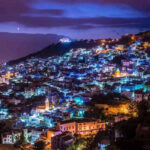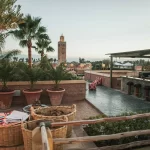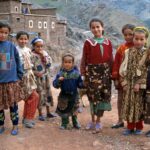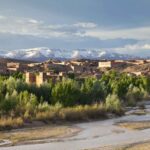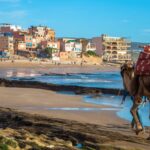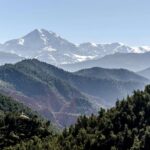Morocco is a captivating nation offering abundant cultural, architectural, and culinary delights. Nevertheless, if you happen to visit during Ramadan, the idea of experiencing their food culture may seem daunting.
As someone who has visited Morocco during this holy month, I can attest to both its advantages and disadvantages. Allow me to share my firsthand experience and some valuable tips for tourists looking to explore Morocco’s wonders during Ramadan, including the upsides and downsides associated with traveling at such times!
Table of contents
What is Ramadan?
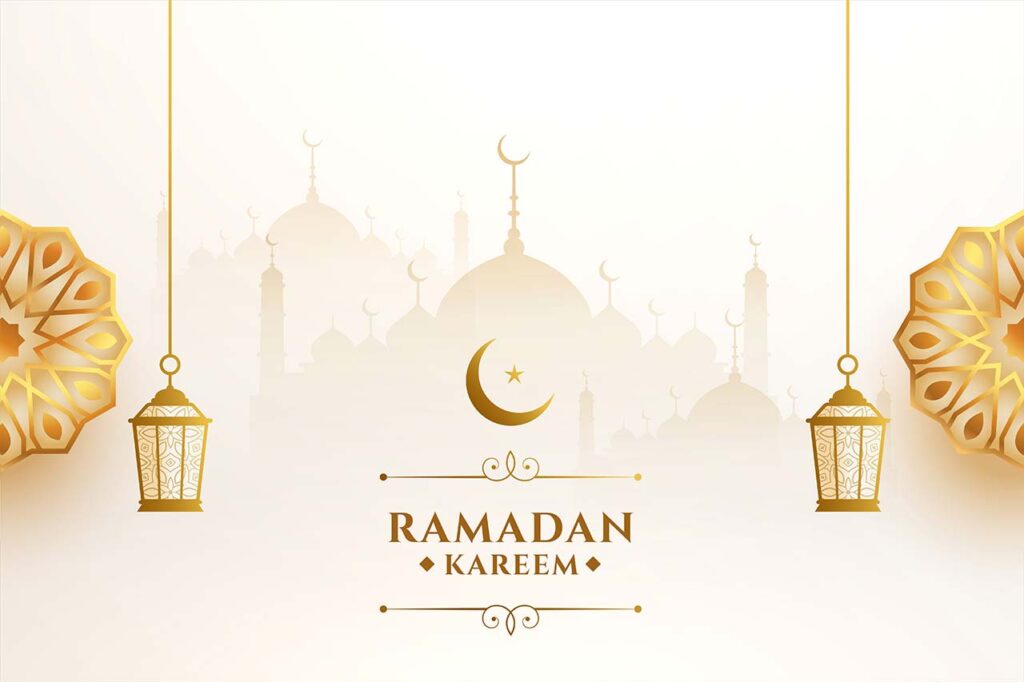
Let me introduce you to the significance of Ramada.
Ramadan is a holy occasion observed by Muslims worldwide for 30 days every year. The Islamic calendar, which follows lunar cycles, determines its timing and duration each year. You can check out this comprehensive Ramadan schedule that covers the next decade.
Muslims observe fasting during daylight hours throughout Ramadan and abstain from consuming food or drinks such as water or juices until sunset, when they break their fast only to resume it again at dawn.
This month-long period serves as an opportunity for self-reflection on one’s blessings while empathizing with those who are less fortunate in society.
Visiting Morocco during Ramadan
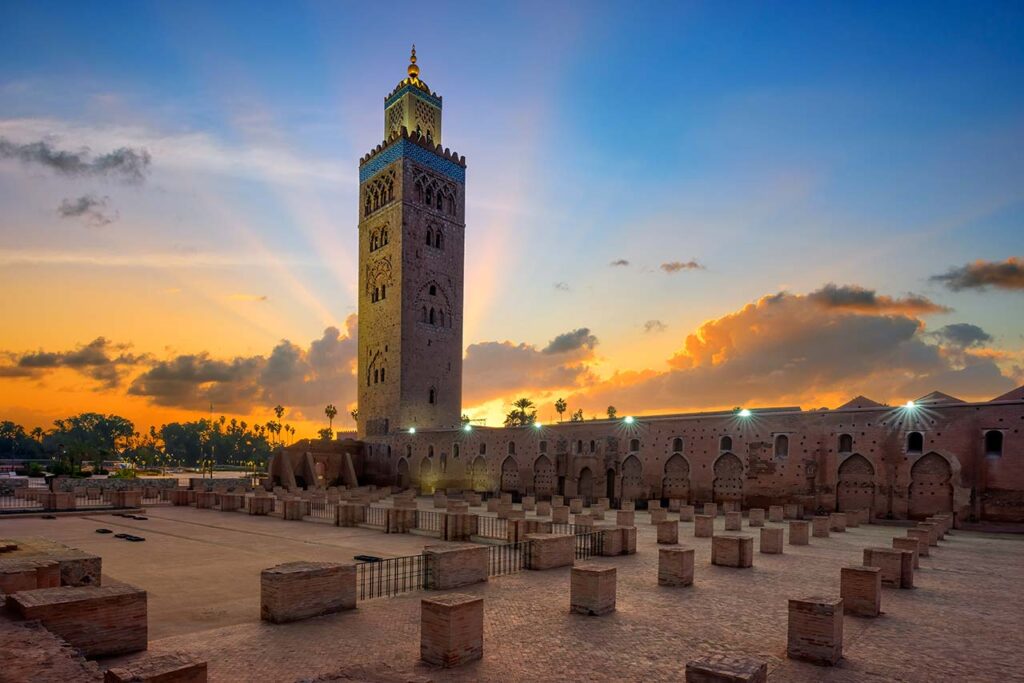
As you delve into the topic of Ramadan, it’s natural to have many questions racing through your mind. As an outsider, you may wonder if practicing this holy month is mandatory for you or whether restaurants will remain closed during daylight hours. Moreover, there might be some apprehension about eating and drinking in public.
But fret not! The truth is that experiencing Ramadan won’t drastically alter your plans. While certain cafes and stores could operate on unusual schedules or even shut down temporarily, finding food options for lunchtime remains possible without any hassle whatsoever- relishing local cuisine included!
To give you better insight into what a typical day looks like while visiting Morocco throughout Ramadan – we’ve broken things down below just for YOU!
Mornings during Ramadan
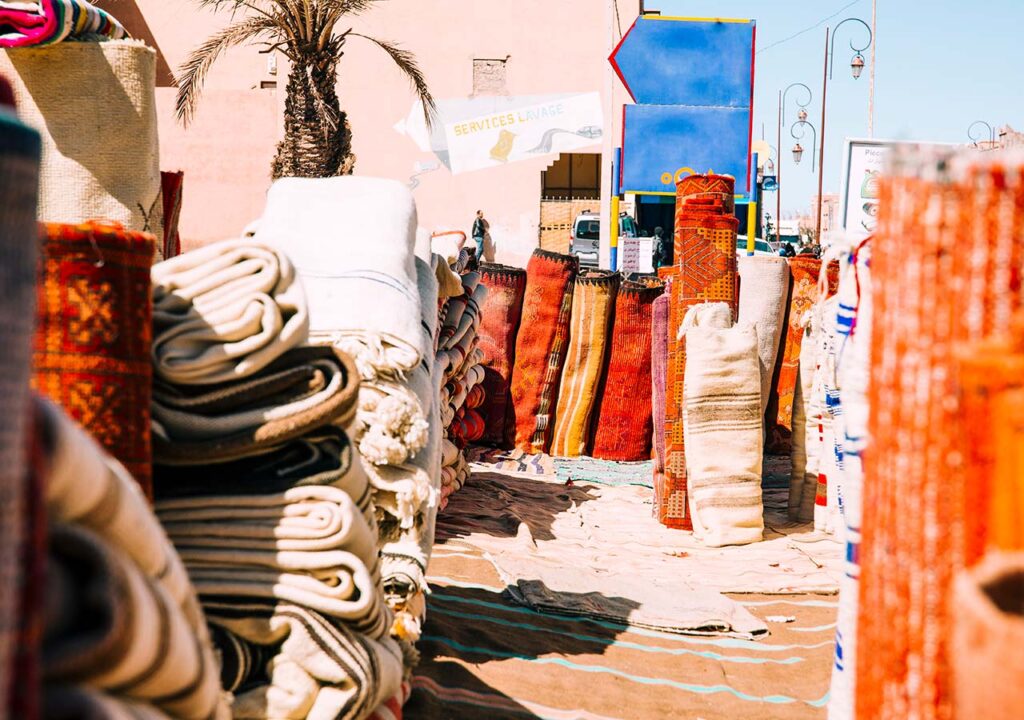
Moroccans tend to have a leisurely start to their day, which may seem unusual for some tourists. They usually wake up at 4 AM for the final meal before starting their fast and then return to bed after praying and eating. This schedule can result in shops opening later than usual, quieter markets in the morning, and limited restaurant options.
However, don’t let this discourage you! There are still plenty of coffee shops and touristy cafes open early enough to serve breakfast. Instead of feeling frustrated by the delay or lack of activity during these hours, take advantage of it! Enjoy exploring without too much traffic or distraction while taking stunning pictures with fewer people around!
So embrace these slow mornings as an opportunity rather than a hindrance – relish them as unique moments that allow you more time for yourself amidst your travels!
Afternoons during Ramadan
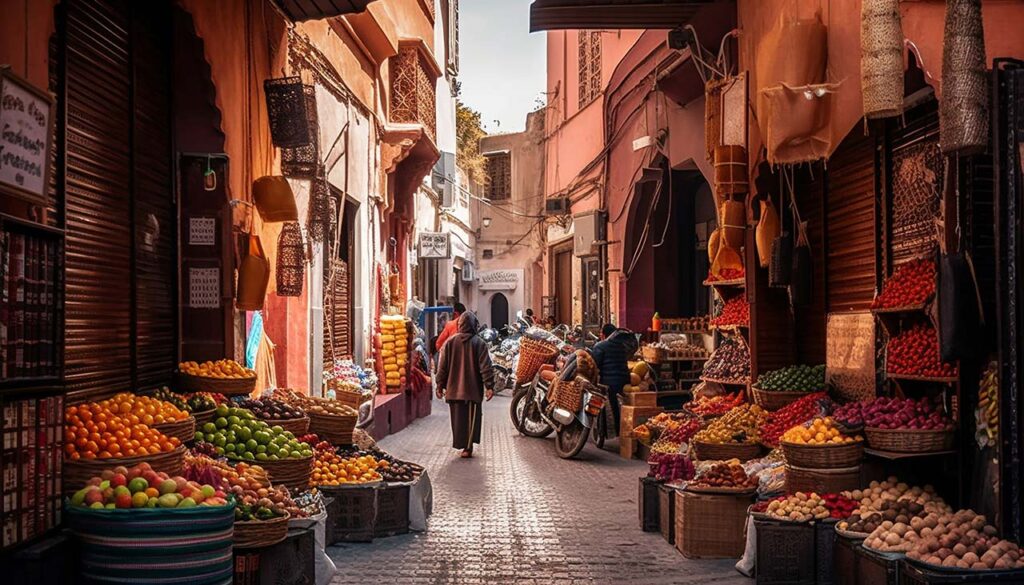
Are you worried about being able to enjoy a delicious lunch during your visit to Morocco during Ramadan? It’s understandable, as the fast can make it seem like all restaurants and cafes would be closed. But fear not! In touristy cities such as Marrakesh, Fez, Chefchaeoun, and more, plenty of open restaurants are ready for tourists.
During my 6 Day Morocco Desert Tour from Casablanca, I only had trouble finding somewhere once – but even then, Pizza Hut was available (fast food chains tend to stay open). Alternatively, grocery stores offer sandwiches and chips too. So don’t let hunger ruin your experience – come explore Moroccan cuisine worry-free this Ramadan season!
Evenings during Ramadan
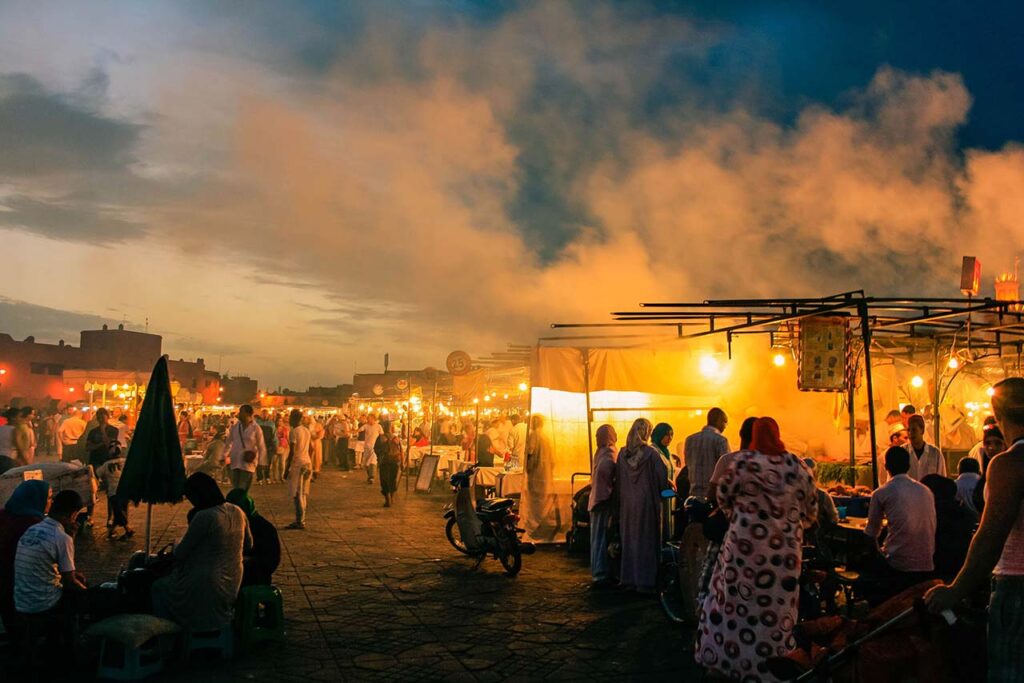
Don’t be fooled into thinking that everything returns to normal once the fast is over in the evening. As soon as the sun goes down (usually around 6-7 PM), all shops and restaurants will abruptly close their doors to accommodate Muslims breaking their fast. The streets become eerily quiet for about half an hour while families gather to eat and celebrate.
But don’t worry, after this brief hiatus; businesses reopen again within an hour or so – perfect timing for tourists who want a quick snack at 4 PM before having dinner officially at around 8 PM.
As night falls, you’ll hear plenty of celebrating on the streets as locals stay up late enjoying the food they’ve been waiting all day! Don’t miss out on experiencing this unique cultural phenomenon during your visit.
Exploring Morocco during Ramadan
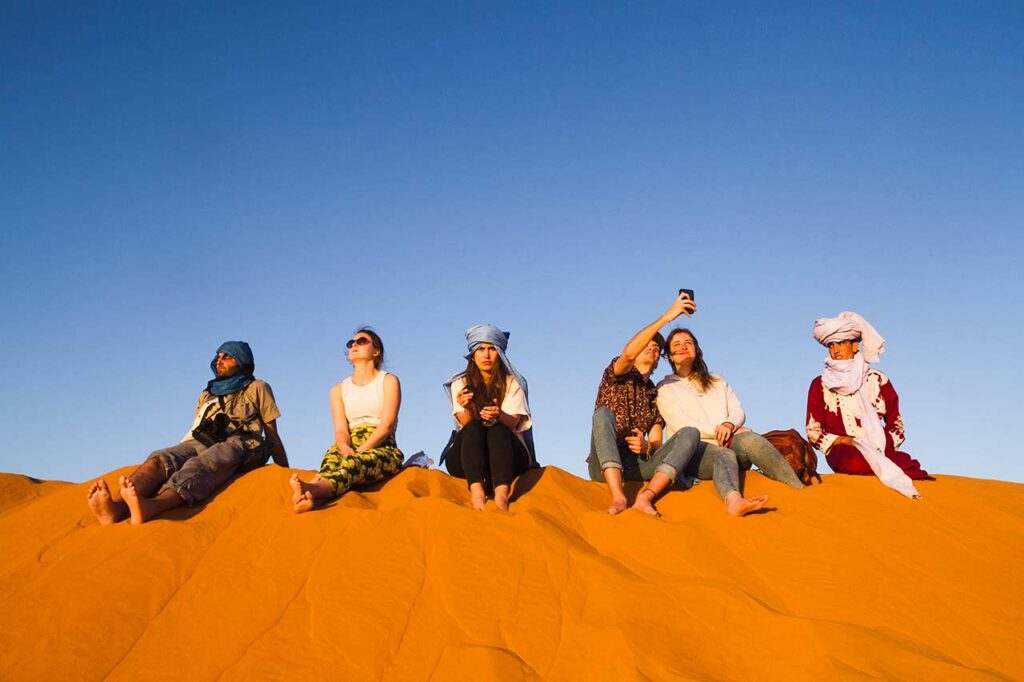
Is it a wise decision or not? Let’s weigh the pros and cons.
Advantages of Visiting Morocco during Ramadan
If you’re looking for an unforgettable cultural experience, visiting Morocco during Ramadan is a must. Not only will you gain a deeper appreciation for the locals and their devotion to Islam, but you will also enjoy fewer crowds, as tourists tend to avoid this time of year. Plus, with reduced demand comes more affordable prices – making it easier on your wallet! Don’t miss out on this incredible opportunity to immerse yourself in Moroccan culture like never before.
Downbacks of visiting Morocco during Ramadan
If you’re considering a trip to Morocco, it’s important to be aware of the potential drawbacks that come with visiting during Ramadan. One major issue is the unusual hours for restaurants and shops, which can make planning your itinerary difficult. Additionally, all nightclubs, bars, and liquor stores are closed during this period.
Another concern is Tramdina – an idea that suggests those who are fasting may become irritable or even violent due to hunger and thirst. While I didn’t personally experience any negative behavior myself while in Morocco during the Ramadan season, it’s still something worth keeping in mind as you plan your travels. Overall though, the unique cultural experiences available at this time of year definitely outweigh these minor inconveniences!
When it comes to deciding whether or not to visit Morocco during Ramadan, the advantages and disadvantages must be carefully considered. However, I strongly recommend taking advantage of this opportunity! It’s a one-of-a-kind experience that won’t significantly impact your overall holiday plans.
Morocco Desert Tours during Ramadan
Visiting Morocco’s Sahara Desert during Ramadan is an extraordinary experience that seamlessly blends the mystique of the desert with the cultural nuances of this sacred month. As the sun sets over the undulating dunes, casting a warm glow across the vast landscape, the Sahara becomes a contemplative haven during Ramadan. While some local cafes may close, lunch cafes catering to tourists during their Morocco desert tours remain open as usual. Breakfasts and dinners, essential components of your desert adventure, are served at your hotels and camps without interruption. This ensures that the rich culinary tapestry of Moroccan cuisine remains an integral part of your experience, eliminating any concerns about finding nourishment during your desert sojourn. The journey becomes a harmonious fusion of spiritual reflection, breathtaking scenery, and the delightful flavors of Morocco.
Tips to planning a trip to Morocco during Ramadan
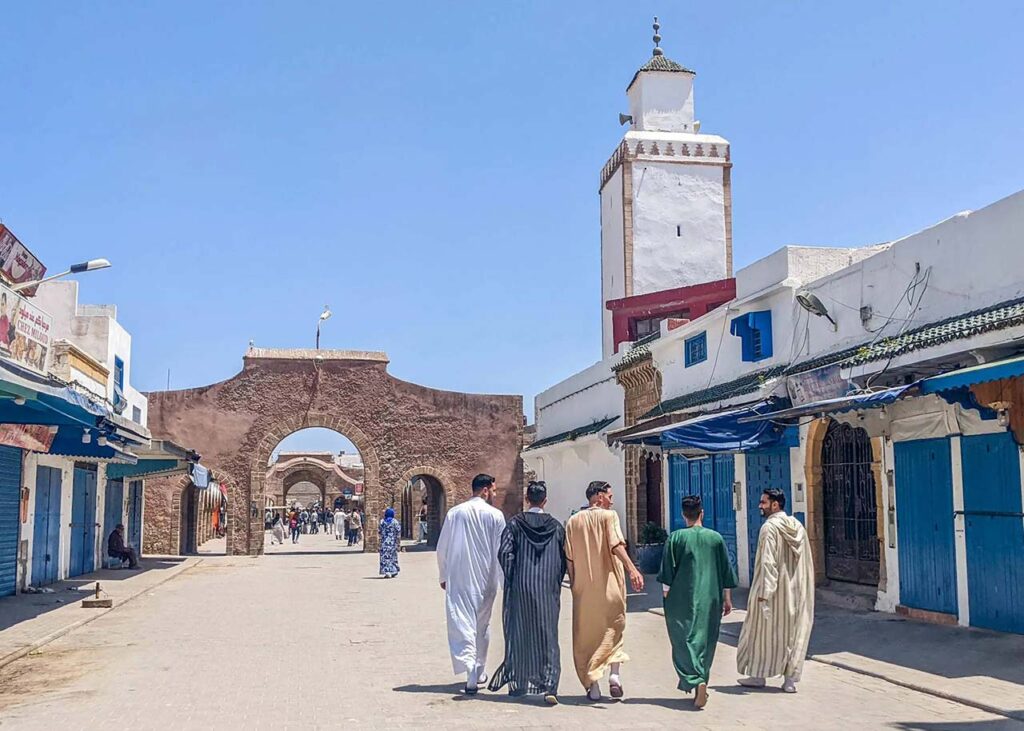
Are you planning a trip to Morocco during Ramadan? Make sure you are well prepared with these tips
- To avoid dehydration, purchase plenty of water the night before.
- Stock up on snacks from convenience stores for when hunger strikes throughout the day.
- Stick to touristy areas for breakfast and lunch as it may be difficult finding food elsewhere during this time.
- If alcohol is important to your travels, keep in mind that it’s almost impossible to find outside of riads, hotels, or “touristy” restaurants due to its frowned-upon status during Ramadan.
- And remember: respect goes both ways – don’t blatantly eat food in front of locals who are fasting.
- After Ramadan ends comes Eid al-Fitr (similarly celebrated like Western Christmas), where availability will become even more limited as locals spend quality family time together – so plan accordingly!
- Last but importantly, modesty is always vital while visiting Morocco; however, especially emphasized within this holy month- dress appropriately out of respect for Morocco’s customs & traditions.
Don’t let a lack of preparation ruin an otherwise amazing experience exploring all that beautiful Morocco has to offer!






